
Darwin: The Gateway to Australia's Northern Wonders
Darwin, the capital city of Australia's Northern Territory, is a melting pot of cultures, rich history, and natural beauty. Situated on the Timor Sea, it boasts a tropical climate with warm weather year-round, making it a perfect destination for those seeking sun and adventure. The city's vibrant waterfront precinct is a hub of activity, featuring waterfront restaurants, boutique shops, and stunning views. Visitors can explore the rich Aboriginal culture at the Museum and Art Gallery of the Northern Territory or take a trip to the Tiwi Islands to experience traditional art and customs firsthand. For nature lovers, Darwin offers easy access to some of Australia's most breathtaking national parks, including Kakadu and Litchfield. These parks are home to an array of wildlife, from saltwater crocodiles to exotic birds, and offer opportunities for hiking, swimming in waterfalls, and exploring ancient rock art. Darwin's markets, such as the famous Mindil Beach Sunset Market, provide a feast for the senses with a wide range of international cuisines, local crafts, and live entertainment. The city's laid-back lifestyle and friendly locals add to its charm, making it a welcoming destination for all travelers.
Local tips in Darwin
- Visit during the dry season (May to October) for the best weather and outdoor activities.
- Take a sunset cruise on Darwin Harbour for spectacular views and a chance to spot dolphins.
- Explore the local Aboriginal art scene at the Parap Village Markets on Saturdays.
- Stay hydrated and wear sunscreen; the tropical sun can be intense.
- Keep an eye out for crocodile warning signs when swimming in natural water bodies.
Darwin: The Gateway to Australia's Northern Wonders
Darwin, the capital city of Australia's Northern Territory, is a melting pot of cultures, rich history, and natural beauty. Situated on the Timor Sea, it boasts a tropical climate with warm weather year-round, making it a perfect destination for those seeking sun and adventure. The city's vibrant waterfront precinct is a hub of activity, featuring waterfront restaurants, boutique shops, and stunning views. Visitors can explore the rich Aboriginal culture at the Museum and Art Gallery of the Northern Territory or take a trip to the Tiwi Islands to experience traditional art and customs firsthand. For nature lovers, Darwin offers easy access to some of Australia's most breathtaking national parks, including Kakadu and Litchfield. These parks are home to an array of wildlife, from saltwater crocodiles to exotic birds, and offer opportunities for hiking, swimming in waterfalls, and exploring ancient rock art. Darwin's markets, such as the famous Mindil Beach Sunset Market, provide a feast for the senses with a wide range of international cuisines, local crafts, and live entertainment. The city's laid-back lifestyle and friendly locals add to its charm, making it a welcoming destination for all travelers.
When is the best time to go to Darwin?
Iconic landmarks you can’t miss
Mindil Beach Sunset Market
Discover the essence of Darwin at Mindil Beach Sunset Market, a vibrant night market filled with delicious food, unique crafts, and breathtaking sunsets.
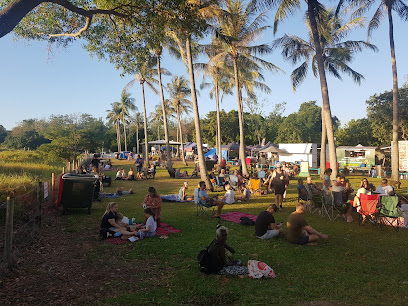
Darwin Waterfront Precinct
Explore the Darwin Waterfront Precinct: a vibrant hub of parks, dining, and recreation with stunning coastal views in the heart of Northern Territory.
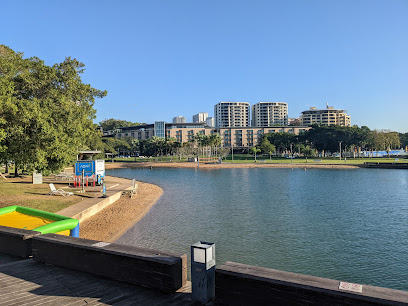
Museum and Art Gallery of the Northern Territory
Explore the Museum and Art Gallery of the Northern Territory, where rich history and vibrant culture come alive through stunning exhibits and engaging experiences.
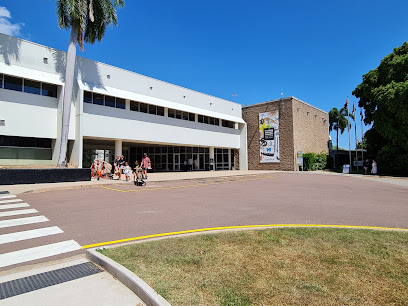
Stokes Hill Wharf
Experience the breathtaking views, rich history, and delicious dining options at Stokes Hill Wharf in Darwin, Northern Territory.
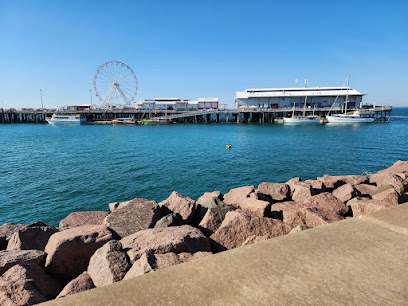
Crocosaurus Cove
Experience the thrill of Crocosaurus Cove in Darwin - home to the world's largest crocodiles and unforgettable wildlife adventures.
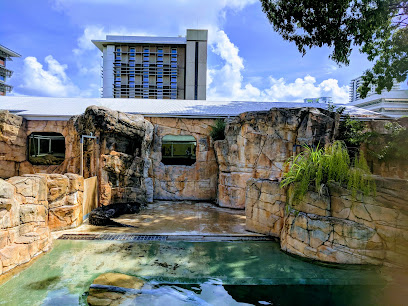
George Brown Darwin Botanic Gardens
Discover the lush landscapes and vibrant flora at George Brown Darwin Botanic Gardens, a serene escape in the heart of Darwin, Australia.
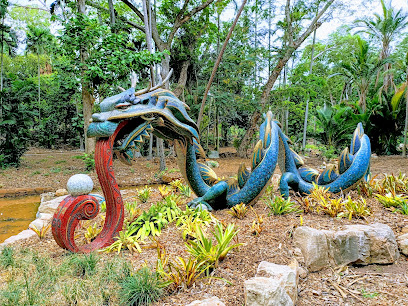
Crocodylus Park
Explore the wonders of Crocodylus Park, a captivating wildlife sanctuary in Northern Territory, home to crocodiles and native Australian animals.
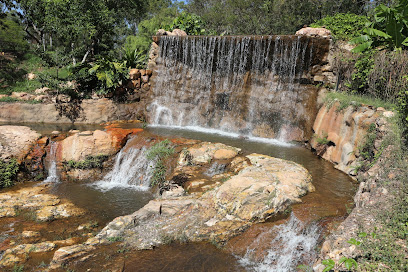
RFDS Darwin Tourist Facility
Explore the history of aviation and the Royal Flying Doctor Service at the RFDS Darwin Tourist Facility – an educational journey through Australia's healthcare legacy.
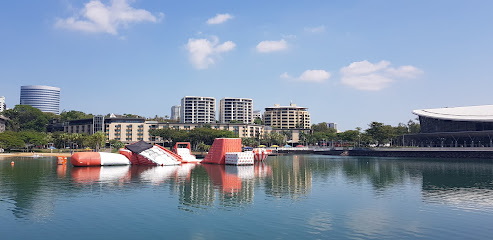
Nightcliff Jetty
Experience the coastal charm of Nightcliff Jetty in Northern Territory, where stunning sunsets and local dining await every visitor.
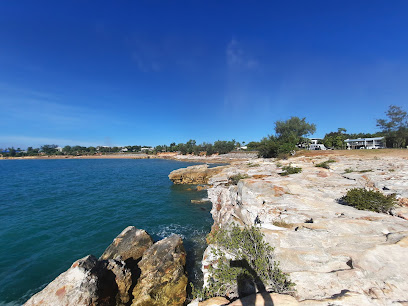
Bicenntenial Park
Discover the beauty of Bicentennial Park, a lush urban oasis in Darwin City perfect for relaxation and exploration.
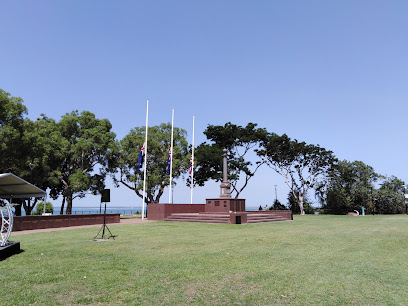
Darwin Museum Underground WWII Oil Storage Tunnels
Uncover the secrets of WWII at the Darwin Museum Underground Oil Storage Tunnels, a captivating historical site rich with stories and exhibits.
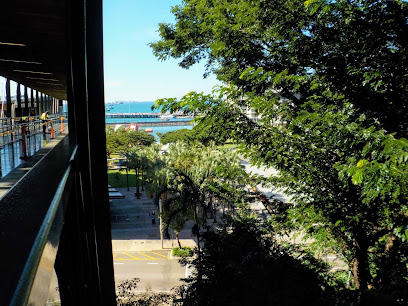
Aquascene Fish Feeding Sanctuary & Cafe
Experience the joy of interactive fish feeding and immerse yourself in nature at Aquascene Fish Feeding Sanctuary & Cafe in Larrakeyah, Northern Territory.
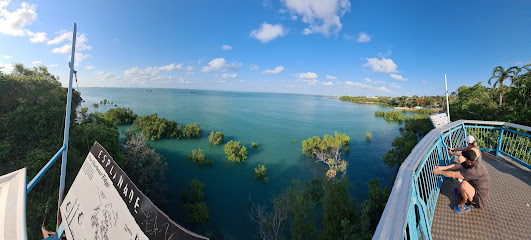
Howard Springs Nature Park
Discover the breathtaking landscapes and wildlife of Howard Springs Nature Park, a serene nature preserve in the heart of Northern Territory, Australia.
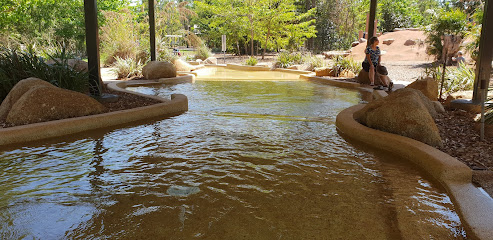
Darwin Wave Lagoon
Discover the Darwin Wave Lagoon, where city life meets tropical relaxation with stunning waves and sandy beaches.
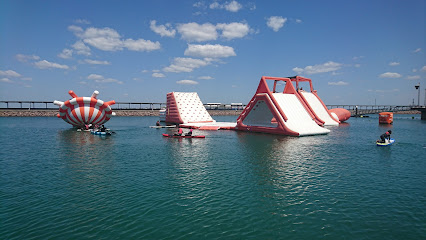
Top End Visitor Information Centre
Explore the wonders of the Northern Territory at the Top End Visitor Information Centre, your essential hub for travel advice and local insights.
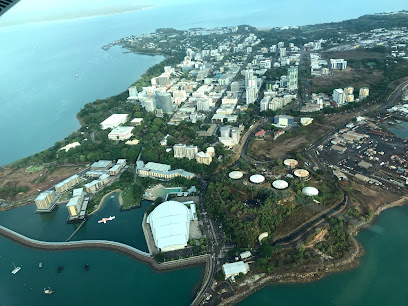
Unmissable attractions to see
Mindil Beach Sunset Market
Discover the flavors and crafts of Australia at Mindil Beach Sunset Market, a vibrant night market showcasing local culture and breathtaking sunsets.
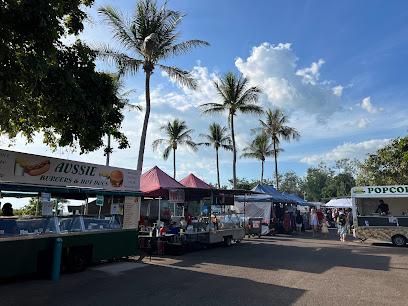
Darwin Waterfront Precinct
Experience the beauty and excitement of the Darwin Waterfront Precinct, a tropical haven with stunning views, exciting activities, and delightful dining options.
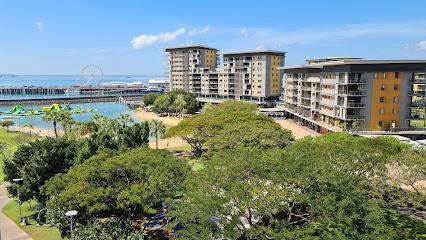
Museum and Art Gallery of the Northern Territory
Discover the rich cultural tapestry of Northern Territory through art and history at the Museum and Art Gallery of the Northern Territory.
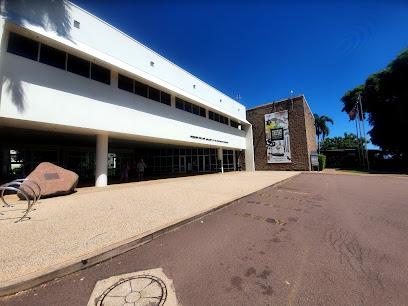
Stokes Hill Wharf
Experience the lively Stokes Hill Wharf in Darwin, where stunning views meet exceptional dining and vibrant local culture.
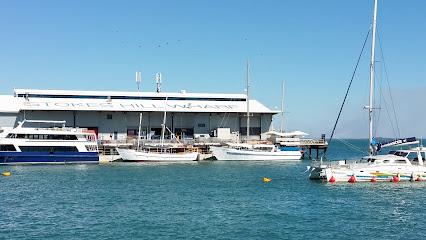
Crocosaurus Cove
Discover the excitement of Crocosaurus Cove, where adventure meets wildlife in the heart of Darwin, Australia.
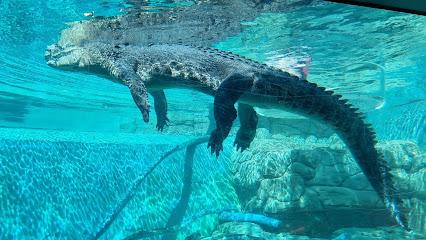
Darwin Military Museum
Explore Darwin's pivotal role in WWII and Australia's military history at this immersive museum and historical site.
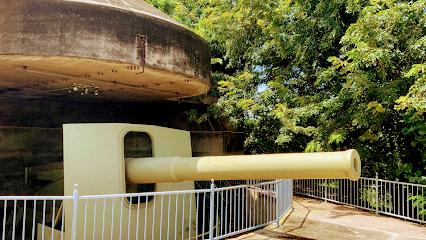
George Brown Darwin Botanic Gardens
Discover a tropical paradise in the heart of Darwin, showcasing diverse flora and serene landscapes in the George Brown Darwin Botanic Gardens.
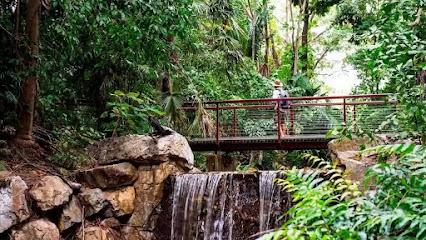
Parap Village Markets
Discover the vibrant atmosphere of Parap Village Markets, where fresh produce, artisan crafts, and local flavors come together in a lively cultural experience.
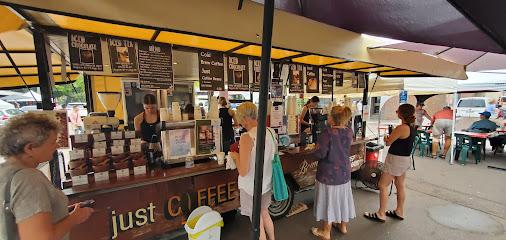
Territory Wildlife Park
Discover the Top End's unique wildlife at Territory Wildlife Park: a blend of nature, conservation, and immersive animal encounters near Darwin.
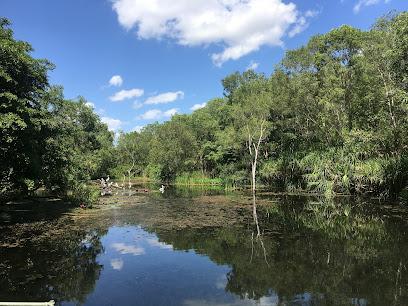
Berry Springs Nature Park
Discover a refreshing natural escape near Darwin: swim in clear pools, explore walking trails, and uncover WWII history at Berry Springs Nature Park.
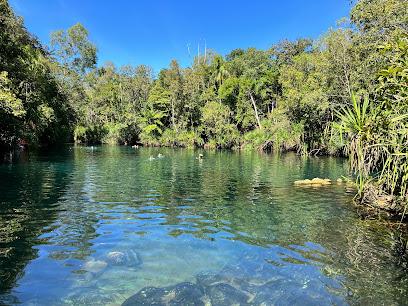
Crocodylus Park
Discover the unique wildlife of Australia's Northern Territory at Crocodylus Park, a family-friendly wildlife park with engaging shows and hands-on experiences.
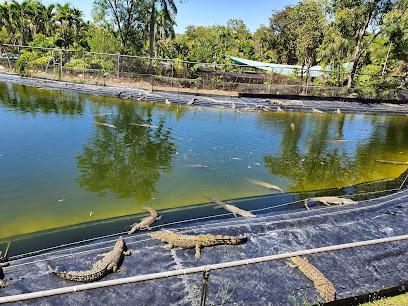
Darwin Aviation Museum
Explore the Territory's aviation history, from WWII aircraft to pioneering flights, at the Darwin Aviation Museum.
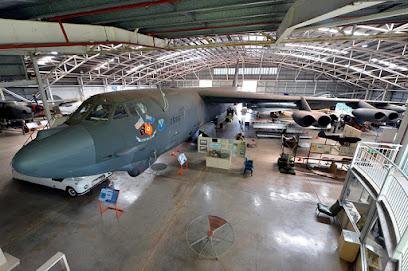
RFDS Darwin Tourist Facility
Uncover the inspiring legacy of the Royal Flying Doctor Service at the RFDS Darwin Tourist Facility in Northern Territory.
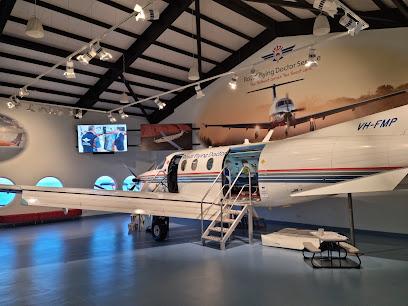
Nightcliff Jetty
Discover the beauty of the Northern Territory at Nightcliff Jetty, a serene coastal spot perfect for sunsets and wildlife watching.
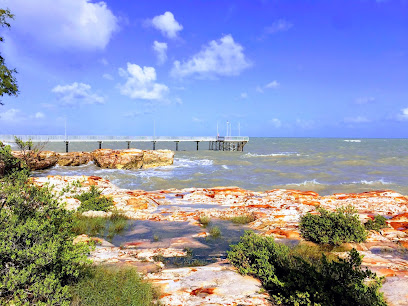
Bicenntenial Park
Discover Darwin's Bicentennial Park: a waterfront haven with history, recreation, and stunning harbor views.
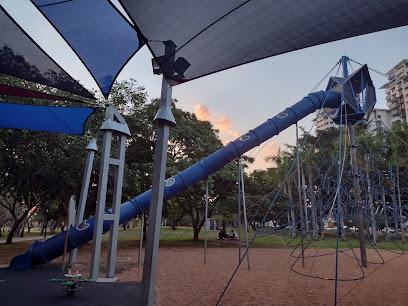
Essential places to dine
Hanuman Restaurant Darwin
Discover authentic South East Asian cuisine at Hanuman Restaurant in Darwin - where every dish tells a story.
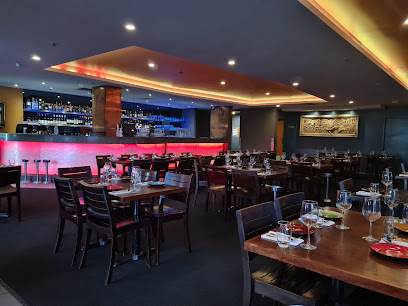
Shenannigans
Discover Shenannigans: A lively Irish pub in Darwin City offering authentic cuisine, drinks galore & vibrant sports atmosphere.
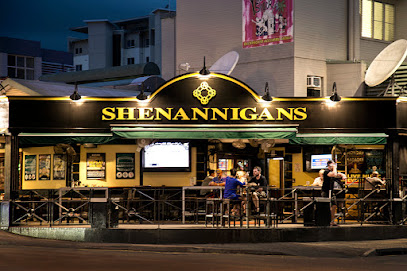
Seafood on Cullen
Experience fresh and vibrant seafood dishes at Seafood on Cullen in Larrakeyah – a culinary gem by the marina.
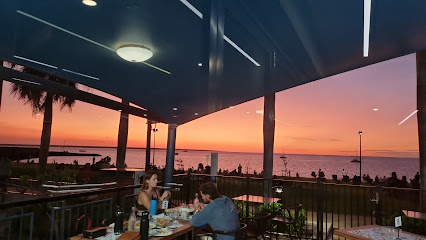
The Precinct
Experience the vibrant atmosphere of The Precinct in Darwin City - where delicious food meets lively entertainment.
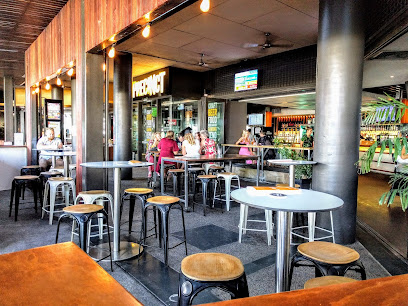
Tim's Surf & Turf
Experience the best of land and sea at Tim's Surf & Turf, where fresh seafood meets prime steak in the heart of Darwin.
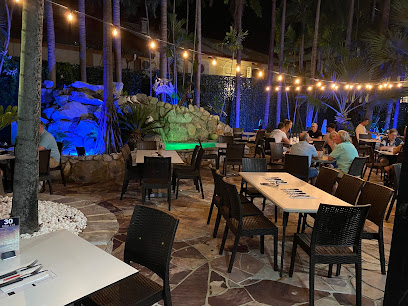
Hot Tamale
Discover authentic Mexican cuisine and vibrant cocktails at Hot Tamale in Darwin City - a culinary fiesta awaits you!
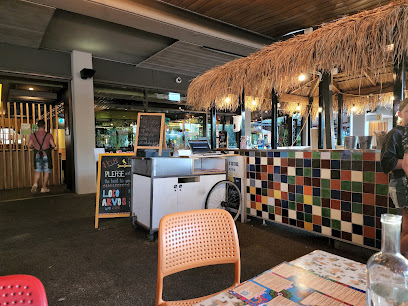
Moorish Cafe
Discover Moorish Cafe: A delightful fusion of North African flavors and Spanish tapas in Darwin City.
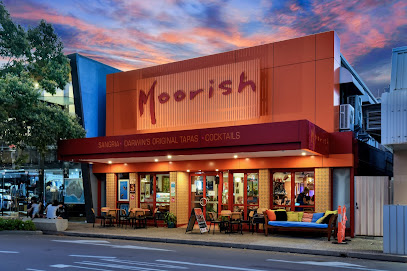
Alfonsino's
Experience the taste of Italy at Alfonsino's – where authentic cuisine meets warm hospitality in the heart of Darwin City.
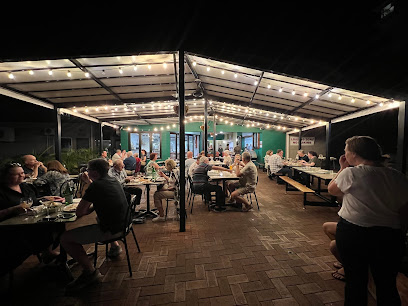
Crustaceans on the Wharf
Discover exquisite seafood and steak dining at Crustaceans on the Wharf with stunning views in Darwin City.
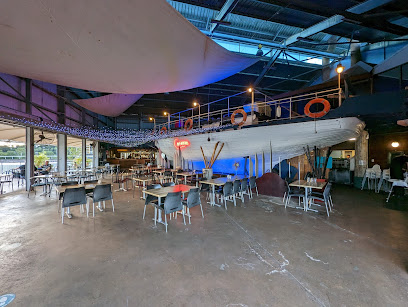
Pee Wee's at the Point
Experience exquisite dining at Pee Wee's at the Point with breathtaking views of East Point’s coastline in Australia’s Northern Territory.
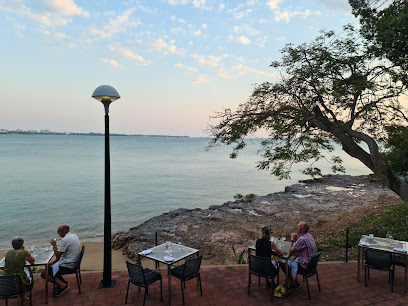
Lola's Pergola Darwin
Discover vibrant dining at Lola's Pergola in Darwin—enjoy gourmet pizzas, refreshing cocktails, and stunning waterfront views.
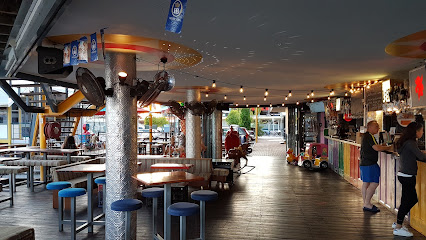
The Jetty Restaurant
Experience exquisite buffet dining with breathtaking waterfront views at The Jetty Restaurant in Darwin.
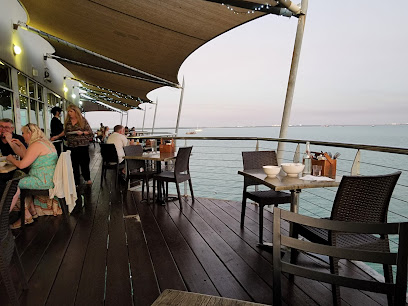
The Deck Bar
Experience vibrant dining and live music at The Deck Bar in Darwin City - your go-to spot for cocktails, coffee, and unforgettable moments.
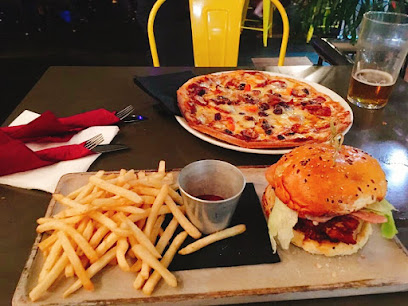
CHOW! A Taste of South East Asia
Experience authentic Vietnamese cuisine at CHOW! A Taste of South East Asia in Darwin City - a culinary journey awaits you.
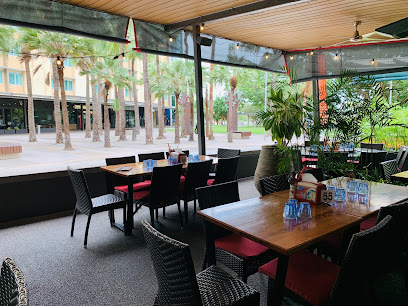
Char Restaurant
Experience culinary excellence at Char Restaurant in Darwin - where stunning waterfront views meet exquisite modern Australian cuisine.
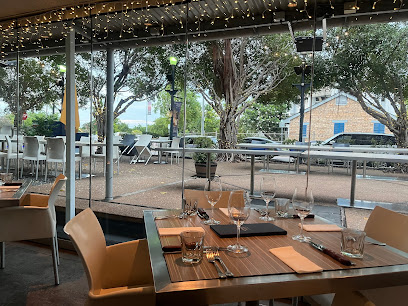
Markets, malls and hidden boutiques
Mitchell Centre
Explore the Mitchell Centre for a unique shopping experience in Darwin, featuring local boutiques, popular brands, and delightful dining options.
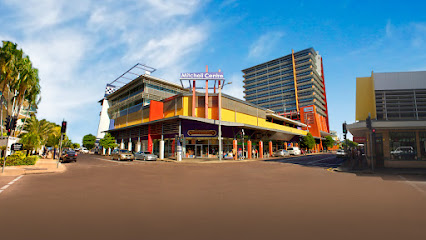
Darwin Galleria
Explore the vibrant Darwin Galleria, where shopping meets culinary delight in the heart of Northern Territory, Australia.
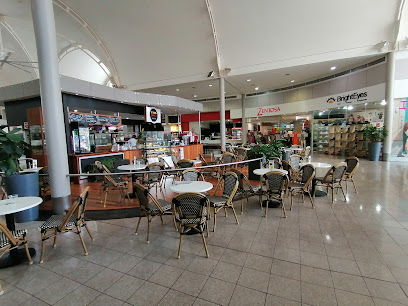
Fishing & Outdoor World
Explore the great outdoors at Fishing & Outdoor World in Darwin City, your one-stop shop for fishing, camping, and adventure gear.
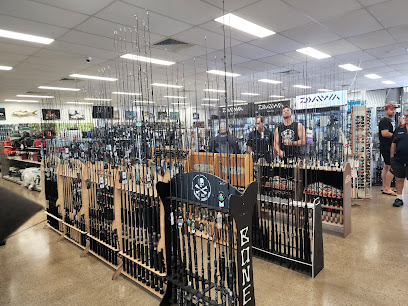
The NT General Store
Discover the NT General Store in Darwin City for top-quality camping gear and unique military surplus, perfect for your Northern Territory adventures.
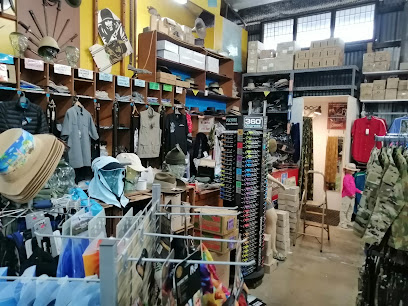
The Bookshop Darwin
Discover a literary oasis at The Bookshop Darwin, where every book tells a story and every visit unfolds a new adventure in literature.
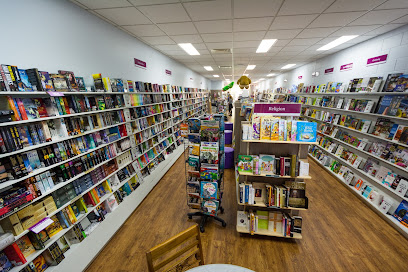
Aboriginal Bush Traders
Explore authentic Aboriginal art and local crafts at Aboriginal Bush Traders in Darwin - a true cultural treasure trove for tourists.
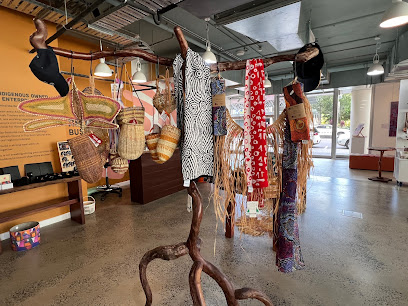
Nextra Gifts & Souvenirs | Casuarina Darwin
Explore Nextra Gifts & Souvenirs in Casuarina for unique gifts and local treasures that capture the spirit of the Northern Territory.
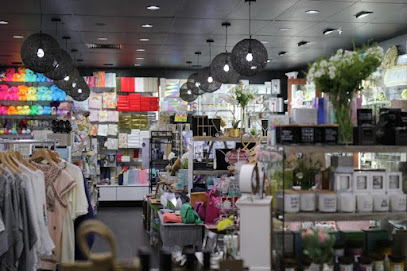
Delaneys Country & Western Store
Discover authentic Australian western apparel at Delaney's Country & Western Store, a unique shopping destination in the heart of Darwin City.
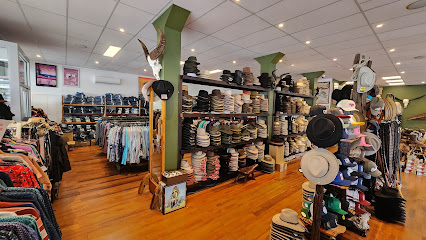
Attitude for Men
Discover elegant men's fashion at Attitude for Men in Darwin City - your go-to destination for stylish clothing and shoes.
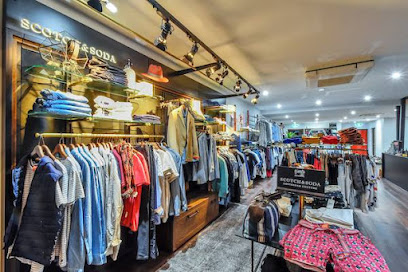
Alfred's
Discover Alfred's, Darwin's premier gift shop, offering unique finds, quirky gifts, and a vibrant atmosphere perfect for all ages.
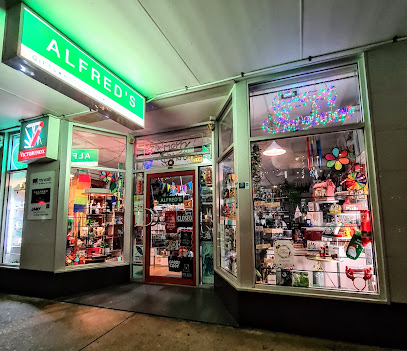
Star Village
Explore Star Village, a vibrant shopping mall in Darwin City, featuring unique boutiques, delightful dining, and local culture.
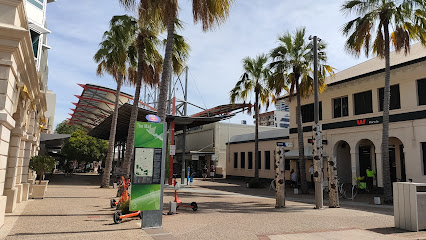
Bread Boutique
Explore the vibrant fashion scene at Bread Boutique in Darwin City, where unique clothing and accessories await every style enthusiast.
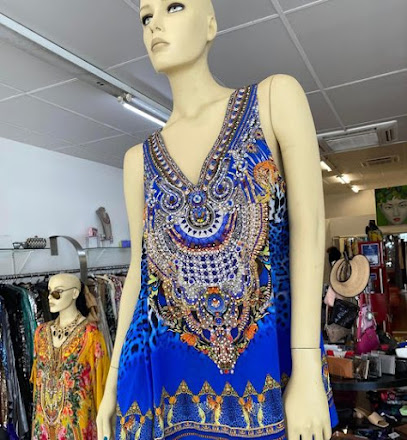
Embella Jewellery
Explore Embella Jewellery in Darwin for unique handcrafted pieces and stylish fashion accessories that capture the essence of Australian craftsmanship.
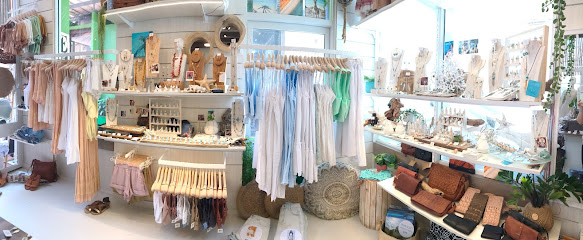
Starwin
Explore Starwin in Darwin City for exquisite Aboriginal art, unique gifts, and a true taste of local culture.
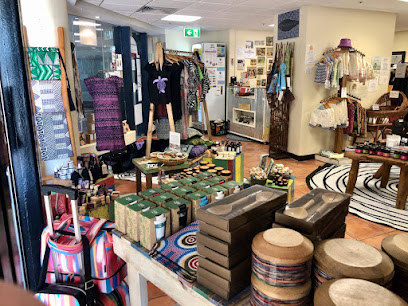
Paperbark Woman
Explore authentic Aboriginal art and textiles at Paperbark Woman, a vibrant hub of culture in Darwin City, celebrating Indigenous heritage.
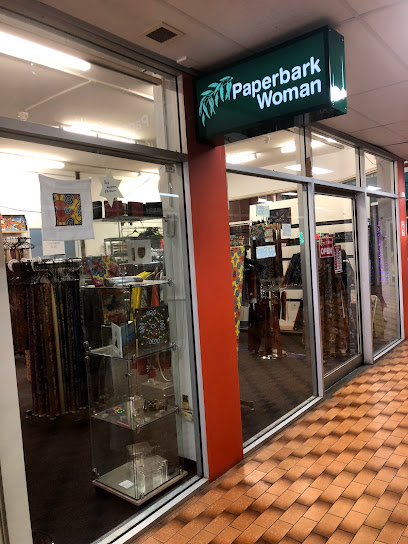
Essential bars & hidden hideouts
Shenannigans
Discover Shenannigans, a vibrant Irish pub in Darwin City offering authentic cuisine, a vast drink selection, and lively entertainment for all.
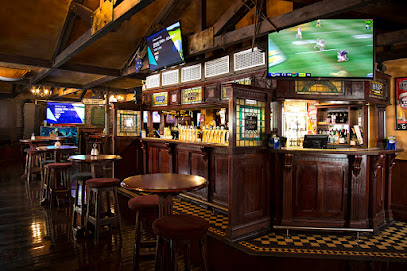
Monsoons Darwin
Experience the vibrant nightlife at Monsoons Darwin, a bar and live music venue offering delicious food, great drinks, and unforgettable entertainment.
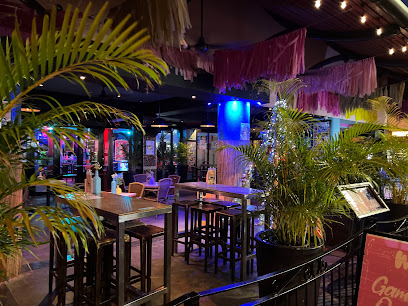
The Precinct
Experience the vibrant atmosphere and delicious cuisine at The Precinct, Darwin's premier pub for locals and tourists alike.
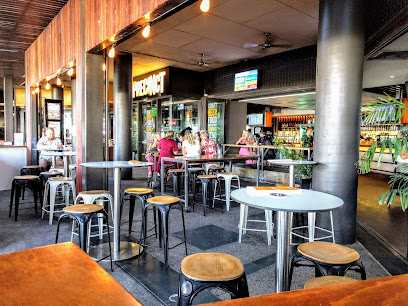
Hotel Darwin
Discover Hotel Darwin: A lively bar and restaurant offering cocktails, live music, and a vibrant atmosphere in the heart of Darwin City.
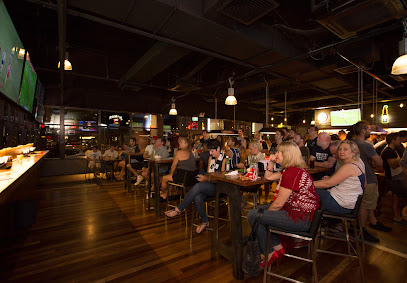
The Deck Bar
Unwind at The Deck Bar, Darwin's premier live music venue offering delicious food, refreshing drinks, and an unforgettable atmosphere.
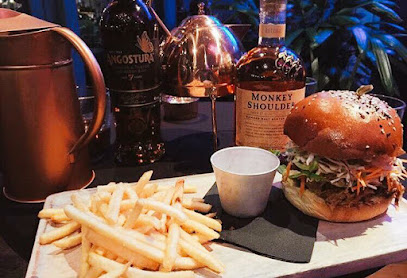
Fiddlers Green
Experience the essence of Ireland at Fiddlers Green, Darwin's vibrant Irish pub featuring seafood delights and a lively atmosphere.
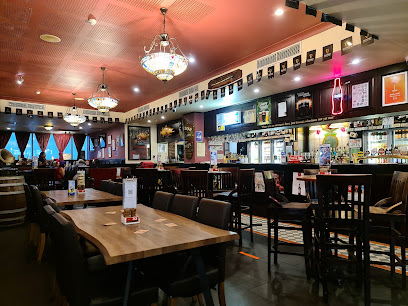
Stone House Wine Bar & Kitchen
Discover a delightful fusion of fine wines and local flavors at Stone House Wine Bar & Kitchen in the heart of Darwin.
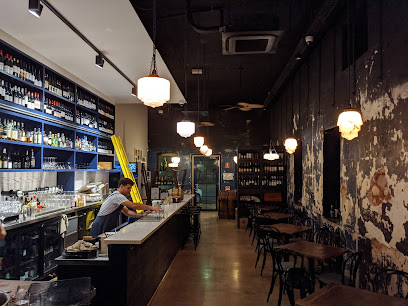
The Lost Arc
Discover the vibrant nightlife of Darwin at The Lost Arc, a perfect blend of restaurant, bar, and night club for an unforgettable experience.
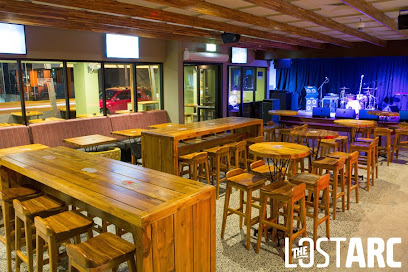
Six Tanks Brew Pub
Discover the vibrant Six Tanks Brew Pub, a lively bar and brewery in Darwin City serving craft beers, delicious food, and unforgettable entertainment.
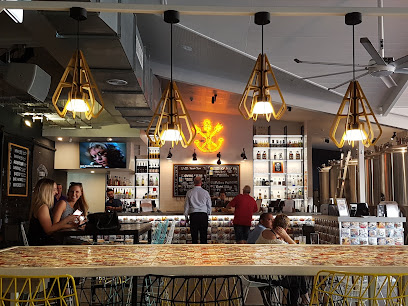
Lizards Bar and Restaurant
Experience the vibrant atmosphere and delicious flavors at Lizards Bar and Restaurant, a must-visit in Darwin for food and nightlife lovers.
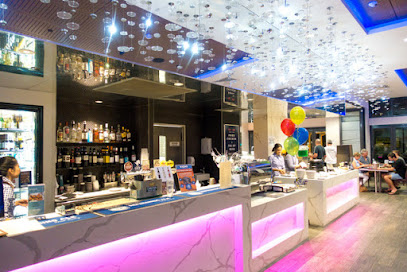
Charlie's of Darwin
Experience the vibrant nightlife at Charlie's of Darwin, a hidden cocktail bar and restaurant serving exquisite drinks and dishes in a chic setting.
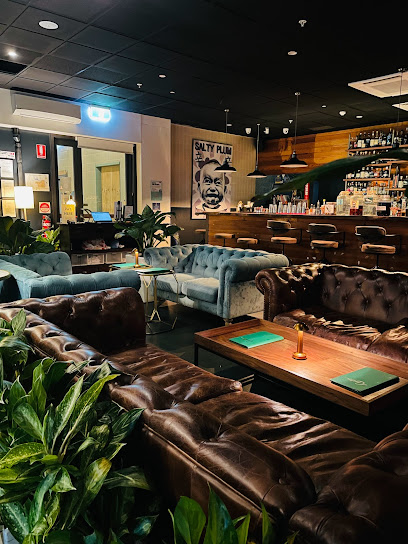
The Trader Bar
Discover The Trader Bar in Darwin, where expertly crafted cocktails and a curated wine selection meet a vibrant atmosphere for unforgettable nights.
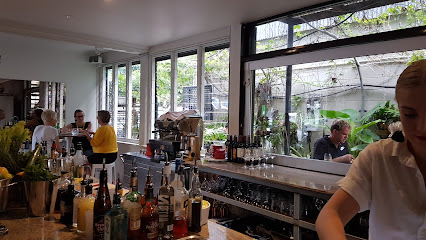
Dom's Bar & Lounge
Discover Dom's Bar & Lounge in Nightcliff, a cocktail haven with a vibrant atmosphere and an impressive drink selection, perfect for nightlife enthusiasts.
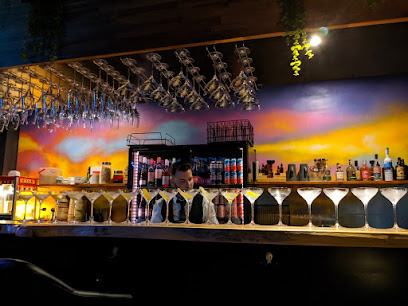
Hanky Panky Lounge
Experience the vibrant cocktail culture of Darwin at Hanky Panky Lounge, where innovative drinks and a lively atmosphere await.
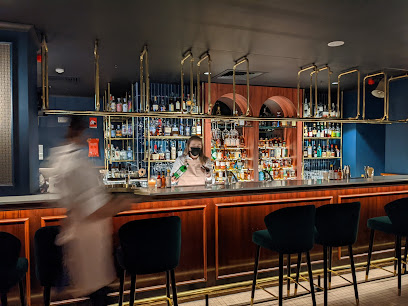
Babylon Bar Darwin
Discover the lively Babylon Bar in Darwin, a perfect blend of vibrant atmosphere and diverse drink offerings for an unforgettable night out.
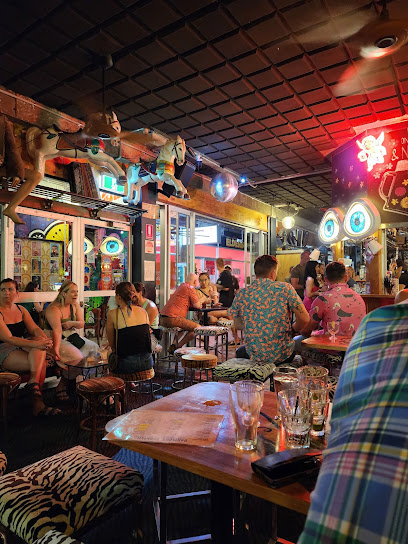
Local Phrases
-
- HelloG'day
[g'day] - GoodbyeSee ya
[see ya] - YesYeah
[yeah] - NoNah
[nah] - Please/You're welcomePlease/Ta
[please/ta] - Thank youCheers
[cheers] - Excuse me/SorrySorry
[sorry] - How are you?How ya goin'?
[how ya goin'] - Fine. And you?Good, you?
[good, you?] - Do you speak English?Speak English?
[speak english?] - I don't understandI'm lost
[i'm lost]
- HelloG'day
-
- I'd like to see the menu, pleaseMenu, please
[menu, please] - I don't eat meatNo meat
[no meat] - Cheers!Cheers!
[cheers!] - I would like to pay, pleasePay, please
[pay, please]
- I'd like to see the menu, pleaseMenu, please
-
- Help!Help!
[help!] - Go away!Bugger off!
[bugger off!] - Call the Police!Cops!
[cops!] - Call a doctor!Doc!
[doc!] - I'm lostLost
[lost] - I'm illSick
[sick]
- Help!Help!
-
- I'd like to buy...I'll take...
[i'll take...] - I'm just lookingJust lookin'
[just lookin'] - How much is it?How much?
[how much?] - That's too expensiveToo dear
[too dear] - Can you lower the price?Discount?
[discount?]
- I'd like to buy...I'll take...
-
- What time is it?What's the time?
[what's the time?] - It's one o'clockIt's one
[it's one] - Half past (10)Half ten
[half ten] - MorningMorning
[morning] - AfternoonArvo
[arvo] - EveningEvening
[evening] - YesterdayYesty
[yesty] - TodayToday
[today] - TomorrowTomoz
[tomoz] - 1One
[one] - 2Two
[two] - 3Three
[three] - 4Four
[four] - 5Five
[five] - 6Six
[six] - 7Seven
[seven] - 8Eight
[eight] - 9Nine
[nine] - 10Ten
[ten]
- What time is it?What's the time?
-
- Where's a/the...?Where's the...?
[where's the...?] - What's the address?Address?
[address?] - Can you show me (on the map)?Show me (on the map)?
[show me (on the map)?] - When's the next (bus)?When's the next (bus)?
[when's the next (bus)?] - A ticket (to ....)Ticket (to ...)
[ticket (to ...)]
- Where's a/the...?Where's the...?
History of Darwin
-
The Larrakia people are the traditional custodians of the land that is now known as Darwin. Their presence in the region dates back over 60,000 years. The Larrakia were skilled fishers, hunters, and traders, with extensive networks that extended across northern Australia and beyond. Their rich cultural heritage is deeply woven into the fabric of Darwin's history.
-
The first recorded European visit to the Darwin area was by Dutch navigator Abel Tasman in 1644. However, it wasn't until 1839 that the area received its current name. That year, the HMS Beagle, under the command of John Clements Wickham, sailed into the harbor and named it 'Port Darwin' in honor of Charles Darwin, the renowned naturalist.
-
In 1869, George Goyder, the Surveyor-General of South Australia, established a settlement at Port Darwin, which was initially named Palmerston. The initial years were challenging due to harsh climatic conditions and isolation. However, the discovery of gold at Pine Creek in the 1870s spurred growth and attracted a diverse population of miners and entrepreneurs.
-
During World War II, Darwin became a crucial military base for Allied forces. On February 19, 1942, the city experienced a series of devastating air raids by Japanese forces. Known as the Bombing of Darwin, this event marked the first and largest foreign attack on Australian soil. It resulted in significant loss of life and extensive damage to the city.
-
After World War II, Darwin underwent extensive reconstruction. The city's strategic importance continued to grow, and it became a hub for military and civil aviation. The post-war period also saw a significant influx of immigrants, contributing to Darwin's cultural diversity and vibrant community life.
-
On Christmas Eve in 1974, Cyclone Tracy struck Darwin with unprecedented ferocity. The cyclone destroyed more than 70% of the city's buildings and left over 25,000 people homeless. The disaster prompted a massive evacuation and a comprehensive rebuilding program, which transformed Darwin into a modern, resilient city.
-
Today, Darwin is known for its rich multicultural atmosphere, influenced by its Indigenous heritage and the waves of immigrants from Asia, Europe, and beyond. The city hosts numerous cultural festivals and events, such as the Darwin Festival and the Darwin Aboriginal Art Fair, which celebrate its diverse community and vibrant arts scene.
Darwin Essentials
-
Darwin is accessible via Darwin International Airport, located about 13 kilometers from the city center. The airport services both domestic and international flights. Major airlines such as Qantas, Virgin Australia, and Jetstar operate regular flights to Darwin from major Australian cities. International connections are also available from Asia and other regions. From the airport, you can take a taxi, rideshare service, or shuttle bus to your accommodation.
-
Darwin has a well-organized public transportation network, including buses operated by Darwinbus. Taxis and rideshare options like Uber are widely available. For a more independent experience, consider renting a car, especially if you plan to explore the surrounding areas such as Litchfield National Park or Kakadu National Park. Bicycle rentals are also available for those who prefer a more eco-friendly way to get around.
-
The official currency in Darwin is the Australian Dollar (AUD). Credit and debit cards are widely accepted in hotels, restaurants, and shops. ATMs are plentiful, and you can also find currency exchange services at the airport and in the city center. It's advisable to carry some cash for smaller establishments or markets that may not accept cards.
-
Darwin is generally a safe city for tourists, but it's important to take standard precautions. Avoid walking alone at night in unfamiliar areas, and be cautious around Mitchell Street, which can get rowdy during weekends. Keep an eye on your belongings, especially in crowded places. Familiarize yourself with local wildlife safety guidelines, particularly regarding crocodiles and marine stingers.
-
In case of emergency, dial 000 for police, fire, or medical assistance. The Royal Darwin Hospital is the major healthcare facility in the area. Pharmacies are readily available for minor health issues and over-the-counter medications. Ensure you have travel insurance that covers medical emergencies and familiarize yourself with your embassy's contact details in case you need consular assistance.
-
Fashion: Do dress casually and for the tropical climate; light, breathable fabrics are recommended. Avoid overly revealing clothing when visiting cultural or religious sites. Religion: Do show respect for Aboriginal cultures and traditions. Public Transport: Do maintain quiet and orderly behavior on buses. Don't eat or drink on public transport. Greetings: Do greet people with a friendly smile or a nod. A handshake is common in formal settings. Eating & Drinking: Do try local delicacies, including fresh seafood. Don't litter; use designated bins.
-
To experience Darwin like a local, visit the Mindil Beach Sunset Market for local crafts, food, and entertainment. Explore the Darwin Waterfront Precinct for dining, swimming, and relaxation. Take a stroll through the George Brown Darwin Botanic Gardens or visit the Museum and Art Gallery of the Northern Territory for insights into local history and culture. Engage with locals and respect the unique Aboriginal heritage of the region.
Trending Landmark in Darwin
-
Mindil Beach Sunset Market
-
Darwin Waterfront Precinct
-
Museum and Art Gallery of the Northern Territory
-
Stokes Hill Wharf
-
Crocosaurus Cove
-
George Brown Darwin Botanic Gardens
-
Crocodylus Park
-
RFDS Darwin Tourist Facility
-
Nightcliff Jetty
-
Bicenntenial Park
-
Darwin Museum Underground WWII Oil Storage Tunnels
-
Aquascene Fish Feeding Sanctuary & Cafe
-
Howard Springs Nature Park
-
Darwin Wave Lagoon
-
Top End Visitor Information Centre
Nearby Cities to Darwin
-
Things To Do in Lospalos
-
Things To Do in Baucau
-
Things To Do in Same
-
Things To Do in Suai
-
Things To Do in Aileu
-
Things To Do in Bobonaro
-
Things To Do in Dili
-
Things To Do in Gleno
-
Things To Do in Ermera
-
Things To Do in Alice Springs
-
Things To Do in Makassar
-
Things To Do in Vanimo
-
Things To Do in Buka
-
Things To Do in Port Douglas
-
Things To Do in Mount Hagen












